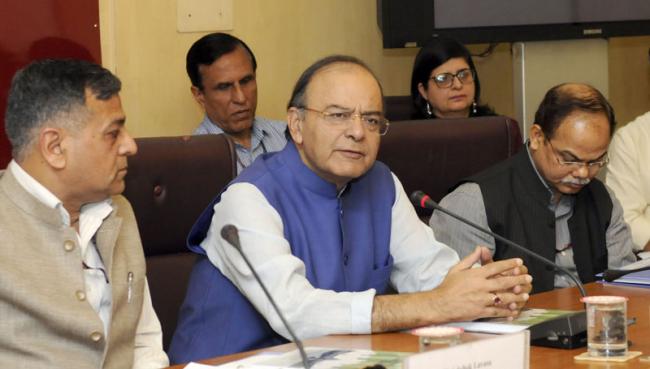
Without multiple tax rates, GST will be regressive: Arun Jaitley
Speaking in favour of multiple tax rates, Jaitley said that taxes must be considered according to the type of commodities.
"We cannot levy the same tax for a BMW car and a slipper" Jaitley said at the lower house.
The slabs of GST has been earlier decided by GST Council at 5%, 12%, 18%, 28%.
FM even stated that the tax slabs have been decided unanimously by all political parties.
"All political parties agreed to keep the tax of a commodity on the nearest bracket (slab)" Jaitley added while speaking in the Parliament.
Highlighting the relevance of federal structure in this bill, Jailey said: "Rates will be controlled both by state legislature and Union Parliament."
Congress leader Veerappa Moili asked the finance minister as to who empowered the GST Council to levy the Article 265 which says that no tax can be levied without the back of the law.
Replying to Congress leader's question, Jailtey cited the constitutional law which empowered the Council to include Article 265.
In this context, FM said: "GST Council has been given the power with regards to the model law."
GST bill has been adopted in the lower house and various MPs are bringing the amendments, following the debate.
Though the money bill can easily be passed by the government because of the majority, Jaitley speaks in favour of achieving the consensus in the house.
"We want to get the consensus and not pass the bill by voting" he said.
Answering the queries of the opposition, Jailey stated the bill is essentially a money bill since it has taxation law.
Support Our Journalism
We cannot do without you.. your contribution supports unbiased journalism
IBNS is not driven by any ism- not wokeism, not racism, not skewed secularism, not hyper right-wing or left liberal ideals, nor by any hardline religious beliefs or hyper nationalism. We want to serve you good old objective news, as they are. We do not judge or preach. We let people decide for themselves. We only try to present factual and well-sourced news.







